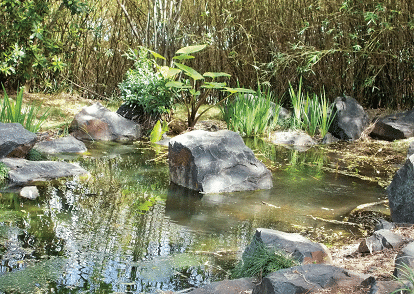Ipswich is preparing for a busy mosquito season.
The wet spring, heat and humidity, coupled with the more recent heavy rainfalls, have us set for a slap, slap, slap during coming months.
Council Health, Security and Community Safety Committee Chairperson Cr Sheila Ireland said climatic conditions and rainfall amounts have a direct effect on mosquito breeding.
“Above average rainfall for a series of months will result in greater areas requiring treatment,” she said.
“This year rainfall is projected at being above average and as such Council is preparing for the potential of a more active mosquito breeding season.
“Council has a dedicated officer assigned to conduct pest management programs and will draw upon contracted resources as required during peak seasons.
“Reports of mosquito-borne diseases detected are monitored on a weekly basis and inform Council’s control program.”
The rain and humidity had played into mozzie hands at the end of November. But Council is ready and has a specialised spray vehicle patrolling known trouble spots.
“The predicted weather patterns may indicate a higher than average mosquito breeding season, however Council plans the management around the weather and information provided by State Government agencies on identified mosquito borne diseases,” she said.
“Some mosquitoes found in and around your house can cause diseases such as Ross River Virus, Barmah Forest Virus and possibly Dengue Fever. Mosquitoes can also give your dog heart worm.
“These mosquitoes breed in water-filled containers or objects such as buckets, pot plant bases, palm fronds, bird baths and old tyres.
“By simply cleaning up items that can hold water or emptying out containers in and around your house and yard weekly, you can help stop mosquitoes from breeding.”
Under the Public Health Regulation, householders have a responsibility to prevent mosquitoes breeding on their property.
Some of the known hot spots in Ipswich, where water ponds after rain, include South Station Road, Raceview; Edmund and George Street, Marburg; Clem Street, Brassall; and Ash Street, Flinders View.
Cr Ireland said these had been specific areas recently treated, however Council has around 200 sites that it monitors, which can change due to building commencement on undeveloped land.
“Prevention of breeding and self-protection from mosquito bites is the best strategy to manage mosquito borne disease,” Cr Ireland said.
Help is here
Council has several programs to mitigate the mozzie mayhem, including:
- Council conducts mosquito inspections and uses information from the following as reference points to assist with the inspection schedule: complaints from members of the community, external agencies such as Queensland Institute of Medical Research (QIMR) and Queensland Health(QH)
- Council monitors breeding sites for mosquito population abundance, including trapping and identification of mosquito species
- Council conducts treatment of areas as required and investigates control methods and habitat modification to prevent mosquito breeding
- Public education proactive programs via brochures, fact sheets and social media to provide advice on how to prevent mosquito breeding.
Tips to reduce the risk of being bitten by mosquitoes:
- Remove potential breeding sites: Empty and/or dispose of all of your containers, clean gutters and ensure your water tank screens are in good order. Some common containers found in yards holding water around Ipswich include buckets, pot plant trays, bird baths, old tyres, bromeliads and unscreened water tanks;
- Use Insect repellent: Use insect repellent when going outdoors, mosquitoes are most active between dusk and dawn however some species do bite through the day;
- Cover up: Wear long-sleeve shirts and pants, and covered shoes. In addition, remember that mosquitoes can bite through lightweight, tight clothing so wear loose fitting clothing; and
- Screen them out: Fit insect screens to all windows and doors and make sure all other entry points are treated in the same way. Make sure existing screens are in good condition.
For more information, check Council’s website on Mosquito control: http://www.ipswich.qld.gov.au/__data/assets/pdf_file/0017/82232/Mosquito-Control-Factsheet.pdf



5
4.5